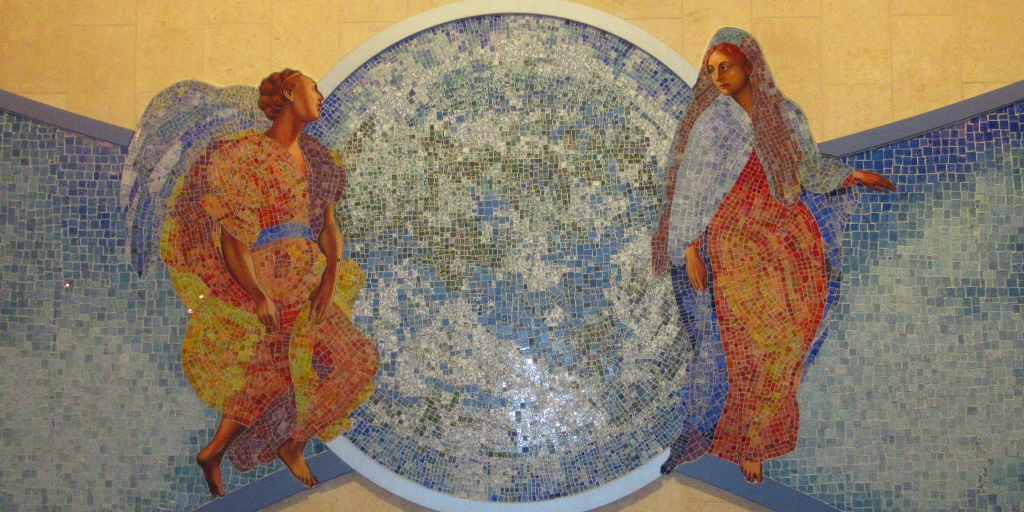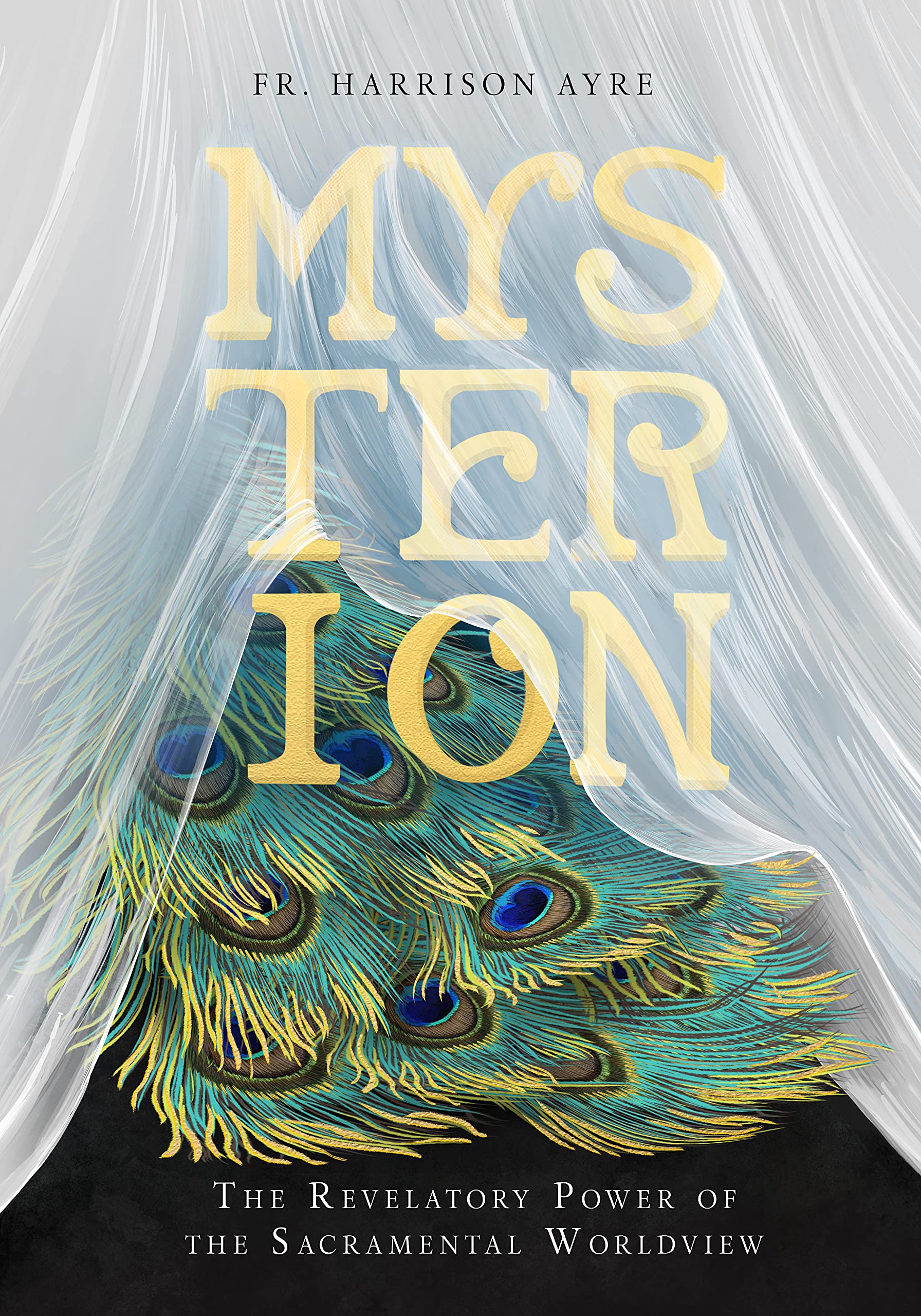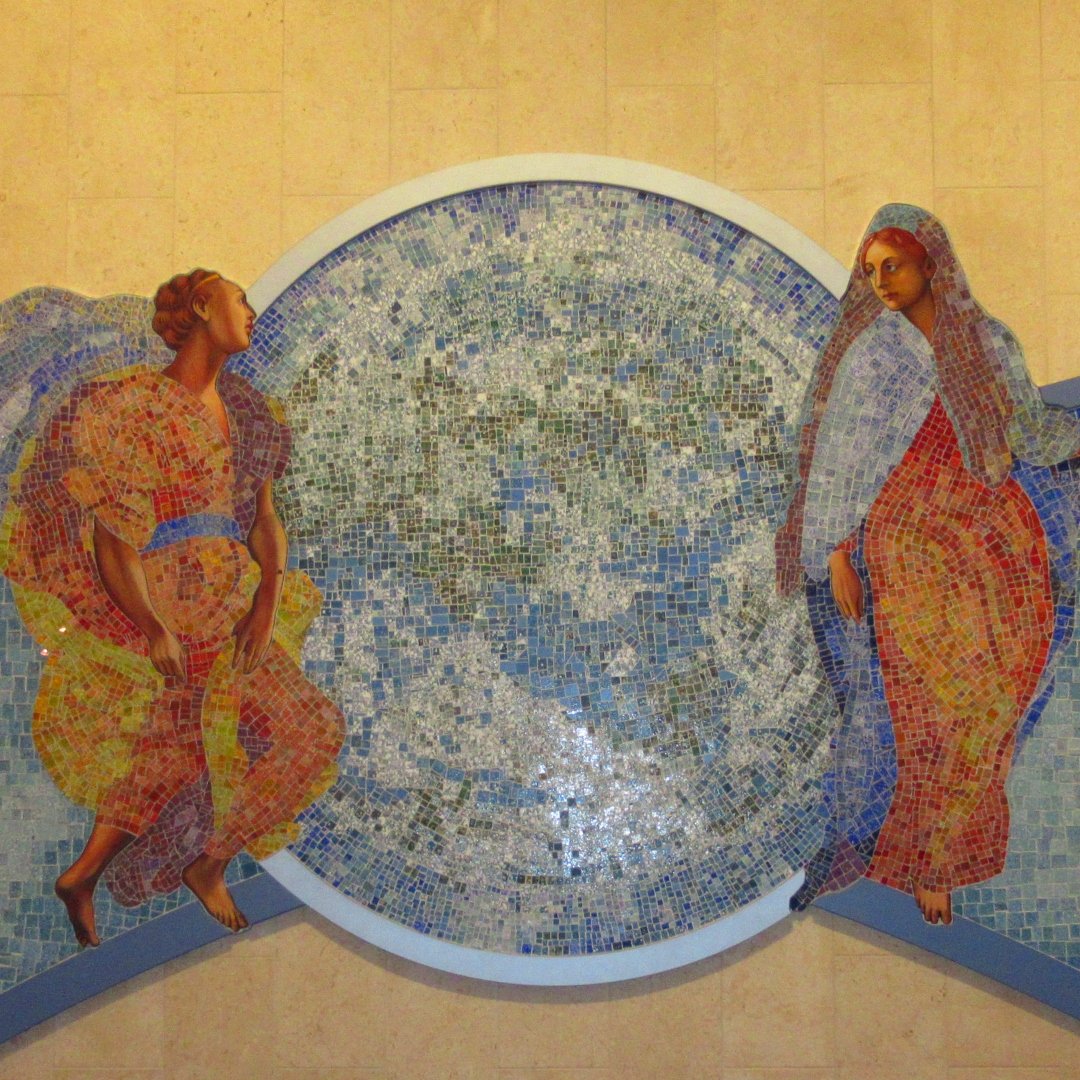
Jane Korvemaker shares how studying Mysterion by Fr. Harrison Ayre can change your perspective on Creation, salvation, and faith.
This Lent, a couple friends and I are using the book Mysterion: The Revelatory Power of the Sacramental Worldview by Fr. Harrison Ayre as a way for us to study our faith together more deeply. The Daughters of St. Paul published not only the book, but also a video series featuring the author talking about each of the chapters. A study guide was also created to go along with the book, which includes both a set of group questions and a set of personal reflection questions. All in all, it is a great resource for one to use personally or in a group.

The challenge Fr. Harrison sets forth right away is this: are we truly living as though we believe in the view the Church takes toward the world, that is, a sacramental worldview?
If this phrase seems familiar and yet foreign, it’s hardly surprising. With the rise of individualistic faith, a.k.a. the “me and Jesus” movement, the idea of a sacramental worldview might seem to lack a personal experience of faith. Or, perhaps it sounds as though one is trying to make everything a sacrament. Interestingly, both these concepts have their moderate place in the sacramental worldview.
God created our whole world built around this idea of sacrament. We understand sacrament as the “visible sign of the hidden reality of salvation” (Catechism of the Catholic Church 774), and a sacramental worldview embodies this to its fullest extent. This means that it is not limited to only the seven sacraments, but these gain a richer meaning within the wider context.
Jesus is our ultimate sacrament, the visible reality of the invisible God, whose name is equivalent to salvation. And as the Second Vatican Council articulated, the Church is the “universal sacrament of salvation” (Lumen Gentium, no. 48). Through Christ living in us, who is made present in us in a particular way through our baptism, we (that is, the Church) become that visible sign of the hidden reality of salvation to the world. God has used, and continues to use, all of creation to communicate His salvific message.
A sacramental worldview is a Catholic way of understanding how humans, as well as all of creation, participate in God’s creative act of mediating salvation throughout the ages.

This is very different from most Protestant perspectives. As Catholics, we understand that we can encounter and come to know God through creation. The fancy term for this is called the analogy of being. For most Protestants, though, this seems to come too close to natural theology; that is, assigning divine qualities to nature as though it is some type of god or demi-god. Instead, they see humanity’s ability to know God as something only God Himself can provide (not creation). The fancy term for this is called the analogy of faith. It comes only when one recognises Jesus as the Son of God who has come to save us from our sins.
At the heart of a sacramental worldview, we recognise how broad the spectrum of God’s work is: he has redeemed all of creation, humanity included. All of creation suffered the consequence of sin and it, too, receives the hope of the resurrection. St. Paul tells us it is “groaning in labour pains even until now” (Romans 8:22), just as we are for our heavenly home.
So we see that God uses creation to make visible His invisible reality of salvation. God especially uses humanity and even more especially the baptised who carry the mark of the invisible reality of salvation on their souls through the presence of the Holy Spirit. As baptised, we are also commissioned to make disciples of all nations (Mt. 28:19), being sacrament to the entire world. Everything created by God points us to God, as a living reflection of his eternal salvation.
What a great gift it is to know that God has designed all of creation from the beginning of time to make visible His invisible saving reality, whose pinnacle is Christ Jesus!

To dive deeper into how to live out a sacramental worldview, I encourage you to pick up Fr. Harrison’s book, Mysterion. So far my friends and I are diving right into this great discussion and are looking forward to being challenged to view and live out God’s saving reality to others around us with renewed spirit. I suspect we will not be disappointed.
Have you considered our sacramental worldview before? Does it challenge the way you understand your faith?
Ask for Mysterion at your local Catholic bookseller, or order online from Amazon.com or the publisher, Pauline Books & Media.

Copyright 2023 Jane Korvemaker
Images: copyright 2023 Jane Korvemaker, all rights reserved.
About the Author

Jane Korvemaker
Jane Korvemaker loves food, family, wine, and God (perhaps not in that order). She holds a Certificate in Culinary Arts, which pairs perfectly with her Bachelor in Theology. A former Coordinator of Youth Ministry, she writes from the beautiful and cold province of Saskatchewan, Canada. She works from home and takes care of her three very hard-working children. Jane regularly blogs at AJK2.ca.


.png?width=1806&height=731&name=CatholicMom_hcfm_logo1_pos_871c_2728c%20(002).png)
Comments